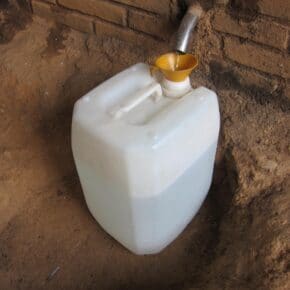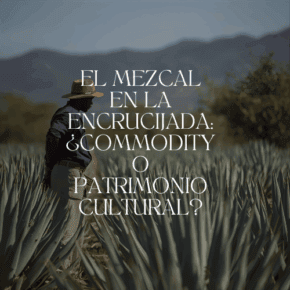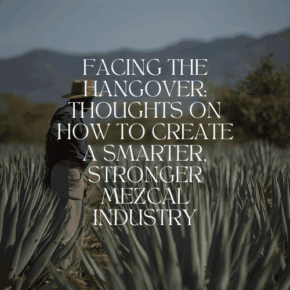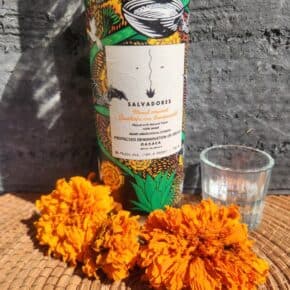It matters who owns you
Another day, another conglomerate purchase of a spirits company. That’s how it has begun to feel with weekly announcements of buyouts and distribution deals. But there are buyouts and then there are buyouts, and who is buying whom matters increasingly, especially in the world of mezcal.
The relationship between Bacardi and Ilegal Mezcal began in 2015 when Bacardi took a stake in the company under a distribution deal. placing a small bet on the future of the mezcal category. The reality of the market in the US is that if you want access to capital, and to distribution in all 50 states for your product, you will eventually align yourself with a multinational spirits company. It’s baked into the system. The three (and sometimes four) tier system of alcohol distribution in the US was developed in the wake of prohibition and was intended to keep the alcohol industry crime free. What has happened instead is a system that is complicated and expensive and one that favors large companies over small, independent spirit companies, be them domestic or international. Bacardi seemed like the right company at that time to help Ilegal grow into more markets. Ilegal had the plans to meet rising market demand with Oaxacan partners who wanted to scale their artisanal production and bring jobs to Santiago Matatlan. And grow it did, becoming one of the top three selling mezcals in the market. In the process, Ilegal not only helped build out two family owned palenques in Matatlan, they were instrumental in bringing well over a hundred jobs to the town and enabling both Los Javis and Mal de Amor to grow their own family brands.
The story of Ilegal Mezcal is legendary: Founder and current CEO John Rexar owned a bar in Antigua, Guatemala and through his travels, spent time in Oaxaca and fell in love with mezcal. He began buying mezcal and would then transport it across the border to Guatemala, hence the “ilegal” name. And like what has happened with so many early to the game people, it turned from a passion project to a full-blown business as he expanded operations to export (legally) to the United States. In doing so, the company created a brand identity that has remained consistent to this day. And along the way, they used their “outlaw” identity to raise money for multiple educational and environmental organizations, and they created jaw dropping, in your face campaigns (Eres Un Pendejo over the image of Donald Trump) to raise awareness around immigrant and women’s rights and more. Say what you will about the mezcal but they put their money where their mouth was.
And, contrary to so many growth stories, they remained transparent in their production process and worked hard to be as responsible as they could in the community in which they operated.
But growth takes money, as so many mezcal brands have found, and accessing capital is not easy. Make no doubt, the liquor business is a very expensive and ruthless game, with thousands of brands fighting it out for shelf space. Take a step into the way back machine and recall that even in 2015/16, mezcal was a teeny tiny drip in the bucket in the overall spirit’s market. A few big conglomerates were beginning to take notice and were looking at ways to dip their toes into the mezcal waters. And at that time, partnering with a multinational liquor company seemed like a good way to go. For the large companies, they were seen as an easy way to test the market and make some money. For brands they were seen as a way to access capital and gain leverage with distributors, while giving up small stakes of the company. Add in a little naivety about working with conglomerates (note that none of the founders of the original big mezcal brands in the market came from the spirits business) and dreams to build a meaningful business in a community Ilegal had come to love, partnering with a multinational perhaps seemed practical and reasonable.
And then there is Bacardi
Bacardi is a family-owned business. It was founded in 1862 in Cuba and for 130 years it remained a strictly rum company but in 1993 all of the changed when the company purchased General Beverage, owner of the Martini and Rossi brand. Not only did this purchase open up distribution channels worldwide, it also doubled the size of Bacardi, turning it into one of the five largest spirit companies in the world. Since then, it has continued acquiring companies and brands and its portfolio now holds more than 200 brands, from rum to liqueurs to vodka, scotch, whisky, gin, tequila, mezcal, cognac, aperitifs, beer, wine, and more. The company has boasted of its adherence to global sustainability goals through its Good Spirited program and says: “At Bacardi, everything we do is in the name of good. Every decision, every commitment, and every promise we make helps us build toward a bright future marked by the bold actions we take today to restore communities, revitalize natural ecosystems, and revolutionize the way we do business. We are Good Spirited.”
Bacardi has a mixed history of the brands it has acquired, but many would agree that in the case of its tequila purchases (Cazadores and Patrón) there has been a noticeable decline in quality of the brands. Cazadores now uses a diffuser, and there are rumors a plenty that some of the Patron, which it purchased in 2018, expressions are mixing in diffuser juice. As one person told us “I have tasted product fresh off the still and it is fine, but then I have the finished product and it was like, what went wrong here?” Additionally, Patron, which had been one of the first brands to jump on board the Additive Free Tequila program by Taste Tequila, is no longer part of the program. There has also been a changeover in brand ambassadors, with many of the longtime ambassadors let go and replaced by Bacardi ambassador teams, long time distillery managers being let go, and the reduction in staff for the education team. This has led to a feeling of less transparency into their operations.
Not helping is that sales of Patron have actually slowed since 2022, so there is even more pressure to budget manage and get more product into the market.
The D’usse Lawsuit
After having gone on a huge buying spurt and spending billions of dollars, Bacardi realized it had to approach the buying of companies it partially owned in a different manner. One way to lower suppress the valuation of a company is to hide the sales, as was alleged by Sean Carter’s, aka Jay-Z’s legal team when he was looking to sell his stake in D’ussé, the cognac brand he had developed with Bacardi. Carter claimed that “Empire (Bacardi subsidiary) sought to stall and stonewall SC’s efforts in an attempt to wrest SC’s 50% membership interest in D’Usse at a cheaper price by, among other things, refusing to provide necessary information,” SC Liquor’s lawyers wrote. Bacardi offered to buy him out for $500 million, Carter balked and took Bacardi to court, claiming his stake was worth at least $1.5 billion. The parties eventually settled on a $750 million dollar price tag for half his stake, thus confirming his 50% stake at a value of $1.5 billion, 3xs what they had offered him. But here is the thing, hardly anyone has the ability to take a multibillion-dollar company to court, unless of course you are also a multibillion-dollar company.
No one except the family and lawyers for Bacardi actually know the finance details of the company. It is privately held so it does not need to disclose details. But, between the Patron deal ($5.1 billion), the lawsuit ($750 million) and slower sales, that’s a lot of money for Bacardi to be out, so there is no question it is re-evaluating a lot of bottom-line decisions.
So where does this leave Ilegal?
If the numbers being bandied about in the trade are correct, Ilegal, given their reported case sales, was sold at a multiple less than the market has paid for other premium agave brands. Be that as it may, sources in Oaxaca have told us that the Ilegal team worked very hard to ensure fair contracts for the producers for at least the next 10 years. This is encouraging, but the real impact of the acquisition over time remains to be seen.
It would be easy to dismiss this story as, well Ilegal knew what it was getting into, or who cares, they are just a big brand. But that is not seeing the forest through the trees. The mezcal category is growing and will continue to grow, the demand for volume production is increasing and will continue to increase; therefore, how a large company conducts itself and the commitments it makes are vitally important for a multitude of reasons, impact on the environment, the communities where things come from and brand integrity being just a few.
In a recent trade publication Bacardi CEO Mahesh Madhavan said, “Bacardi and Ilegal have a shared commitment to communities, quality, and environmental sustainability that we will build upon together as we look to invest for the long term.” Is this just another corporate soundbite? The real question is will Bacardi over time betray the mezcal category, or will they live up to the values that built Ilegal.
We’ll be watching closely.












This was an excellent article and certainly eye opening! Thanks Susan Coss!
Thank you!!
There needs to be exposure and videos of this artisanal process which the horses being utilized to make the Mezcal are mistreated and under fed. I hope PETA will get involved and take note of these poor abused animals by both Mal de amor and Bacardi